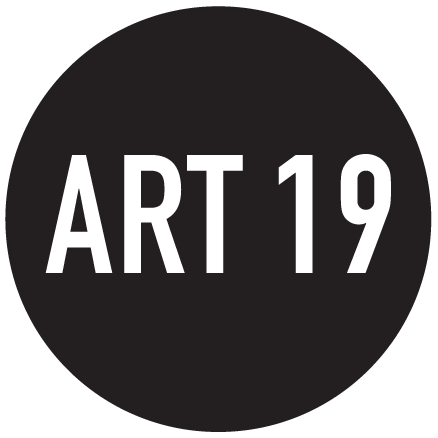Far Out Magazine: Revisiting Yoko Ono's brilliantly visceral album 'Fly' 50 years later
Photo credit: Press
By Eoghan Lyng
Given everything that Yoko Ono was, continues to be, and will always remain, it would be virtually impossible to separate the woman from her art and demonstrate favouritism for her composition without paying tribute to the person behind the melodies. Suffice to say that Fly represents the artist at her most unvarnished, echoing a new form of honesty even more exposed than the confessionals she bellowed on the excellent Yoko Ono/Plastic Ono Band. Unfairly cast as the person who stole John Lennon from The Beatles, Ono’s reputation as a free thinker and an avant-garde performer was being sullied by a series of faintly racist headlines, each one more incendiary than the last. In Fly, that anger, hinted at on her 1970 debut, is unleashed for all to witness.
Fly is a profoundly visceral record, and in its own unique way, proves to be intensely autobiographical, capturing a woman on the cusp of a nervous breakdown. Despite the occasional use of “studio trickery”, Ono’s songs are so nakedly raw they convey an extraordinary conviction that pushes the numbers along. Like a lioness searching for fresh prey, Ono surveys the land, crying out for a change that has yet to come her way. The thematic key to Fly does not lie in her suffering – or her husband’s for that matter – but in the general emotion itself, culminating in a mosaic that is as universal as it is deeply personal. Through pain, Ono emits a genuine howl that signals a change in tone from the upbeat anthems spearheaded by the rock outfits of the sixties. To this end, Ono, as a performer, learned well from the rock acts before her, whose blues-oriented melodies are employed cleverly throughout the album.
The album opens brilliantly with the scintillating ‘Midsummer New York’, a glorious pastiche of Elvis’ oeuvre, whose lyrics are a jagged portrait of an American city suffocating in the sweltering heat. “Wake up in the morning, my beds wet in sweat,” she sings, before adding: “And midsummer new york, scream in the mirror.” The nausea of the track only grows stronger on ‘Mind Train’, a sixteen-minute showcase that demonstrates some of John Lennon’s mightiest guitar playing. ‘Don’t Worry Kyoko’, bolstered by Ringo Starr’s mighty cymbal work, seems an obscure hymn to a lost love between mother and daughter, featuring some of Ono’s most haunting vocal interpolations.
And then we’re back into happier terrains, as ‘Hirake’ – a heavy bass number formerly known as ‘Open Your Box’ – encourages listeners to embrace the inner workings of their trousers. It’s more chant than a carol, but the purring and poise make it the most accessible number on the album and certainly the easiest to dance to. With Klaus Voorman’s bass placed high in the mix, the song, an esoteric hybrid of rock and reggae, has newer resonances when measured against the yoni-centred stories that cement Fleabag and Sex Education. Though the music is among the simplest on the album, the track symbolises Ono at her most fierce, feline and defiantly female.
‘Minlistener’ is a subtler attempt to refocus the listener’s attention on the eerier elements that cement the milieu, culminating in a ghostly vocal cackling over a choppy selection of chords. ‘Toilet Piece/Unknown’ and ‘Telephone Piece’, meanwhile, are short collages whose modus operandi is to provide context to the mundanity of the human existence, while ‘Mrs. Lennon’ – all piano passages and piercing truisms – expresses the artists’ frustration at the shackles her newfound identity has offered. Beautifully written and produced with tremendous detail to the lyric, Ono provides an insight into a marriage as frail, fallible and human as any other. Robbing her partner of his hands, Ono demonstrates another man agitating at the depravity the world is capable of. Like everyone else, he can only sit back, and Ono – another woman denied of her identity through vows, tradition and conjecture – has to watch him cry:
And our children, o’ our children,
Did they have to go to war?
Yes, my love, it’s okay,
Half the world is always killed you know.
There is an innate sense of violence at play on this album, not least on ‘Airmale’, a pounding track that opens with a voice aping the horrors of an air raid siren. All throughout the ten-minute performance, we are exposed to a series of noises, each one more horrific than the last. It’s like listening to a city burning from the ground up, every scream languishing longer than the fires that suffocate them. Ono, who had survived bombs that had exploded all over Tokyo in the 1940s, could resonate with the alien nature of war, and with ‘Airmale’, she curates one of the most evocative and harrowing depictions of ennui committed to record. It’s a bravura set-piece (given extra power by the clattering of drums that play behind every shattering instrument and wail), and the nightmarish effects are designed with great effort, every shimmer an addition to the wall of depravity the work exhibits. If Lennon wasn’t wowed by the boldness of the track, he should have been.
In its own way, the album is as pioneering as Lennon’s Imagine album, but Ono’s Fly is the more imaginative work and certainly the one that holds up to repeated re-listens. Of course, the album could not have been recorded without his musical knowledge or technical acumen (Lennon plays some of the most spontaneous guitar licks on this album), but the soundcraft, vision and passion belong to Ono alone. Fuelled by a history of pain and bewilderment, Ono’s life infuses the album so completely that it’s completely impossible to separate the artist from her work. And why should we, when it still sounds so completely unique 50 years on?
Article published on www.faroutmagazine.co.uk.

